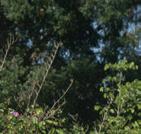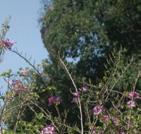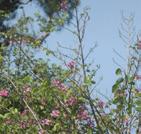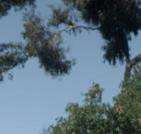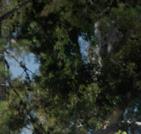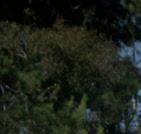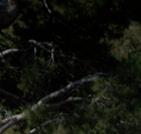CATE SCHOOL

























































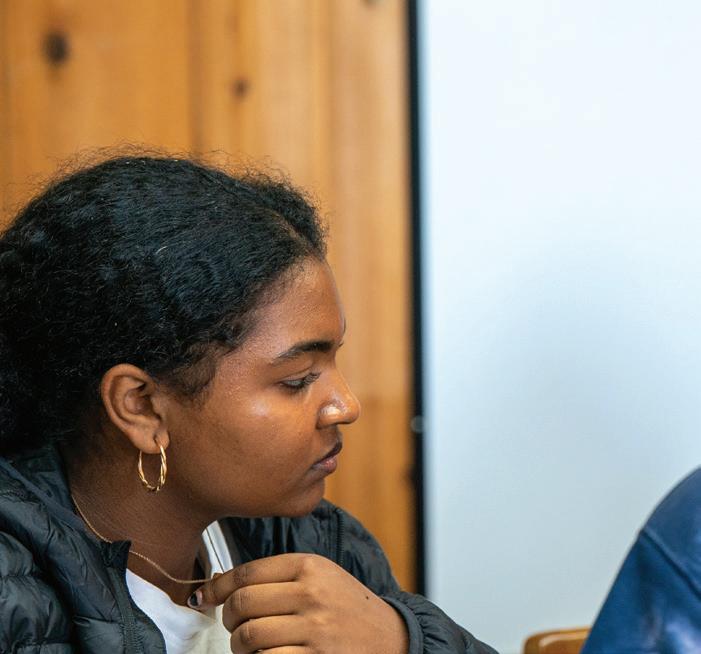









At Cate, students chart their course of study through a curriculum unlike that of any other high school. It begins freshman year, with a deep dive into an interdisciplinary study of the Humanities. In subsequent years, students supplement core courses with rigorous and engaging advanced classes, independent study, and an array of unique electives — all taught by an expert and committed faculty. Our curriculum promotes the greatest possible growth for each student, and meets the demands of even the most advanced learners.
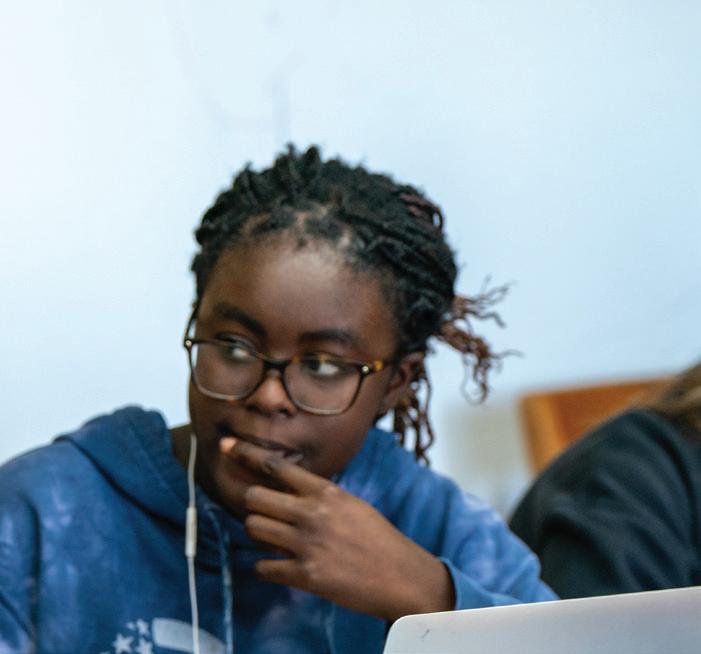
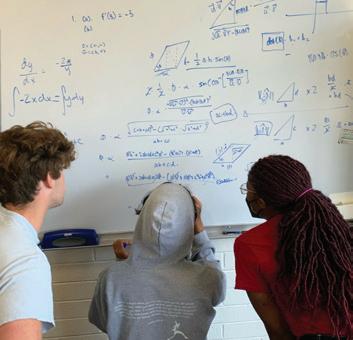
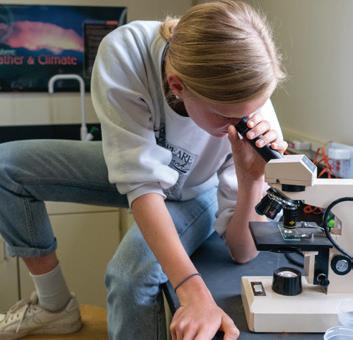
Cate is powered by curiosity and enriched by a culture of inquiry. Our objective is to equip students to be LIFELONG LEARNERS who possess the mindset, passion, and skills to know how to pursue their education in a manner that is COLLABORATIVE, DISCIPLINED, and IMPACTFUL. Central to enabling such a mindset is an inquiry approach to learning which challenges students to make close observations, ask insightful questions, and develop connecting and often interdisciplinary inferences. From this, students ultimately share their findings in ways that are effective as well as rewarding to them, their peers, and the broader world. What follows is a selection of classes that have been offered at Cate to foster this very culture of inquiry.
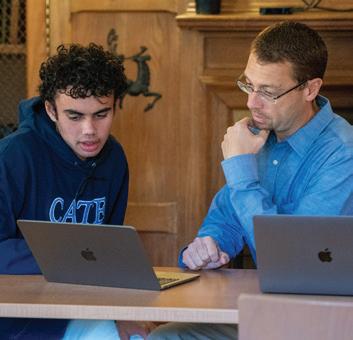

At Cate, grade level content are structured around themes, and a comprehensive curriculum ensures the greatest growth possible for each student. In this booklet, you will find a selection of our classes that highlight the depth and breadth of our program.

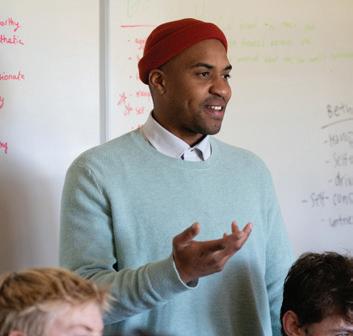
SCAN TO SEE FULL COURSE CATALOG
11th 10th
9th
12th ORIENTATION AND ORGANIZATION CONNECTIONS AND PURPOSE
AWARENESS AND RESPONSIBILITY
MASTERY, SELF-DETERMINATION, AND LEADERSHIP
Arts
Foundation Arts in the first year and two additional upper level courses.

English
One course per year.
Modern Language
Successful completion of a third-year course.
History
One course in each of the first two years and United States History in the junior or senior year.
Human Development
Freshman Seminar in the ninth grade and Sophomore Seminar in the tenth grade.
Mathematics
One course per year through the junior year. All students are expected to complete Math 30: Integrated Algebra 2 and Trigonometry.
Science
Physics in the freshman year, Chemistry in the sophomore year, and Biology in the junior or senior year.
Humanities
One course in the freshman year.
Essential knowledge and core competencies and standards of honorable scholarship
A desire to discover the unknown and acquire the ability, imagination, and initiative to ask and pursue questions of real value
Recognition of the needs and interests of others; empathy and respect; the skills of collaboration, leadership, membership, and service
The ability to identify worthy risks; the methods and skills of the academic disciplines and one’s own best learning practices; the grit, patience, and self-discipline to persist at hard work; the resilience to deal with both failure and success
The skills to collaborate productively with others, to present information clearly, and to be effective presenters, listeners, and respondents employing verbal, quantitative, and visual languages skillfully, using a range of media

From sunrise to sunset you’ll be getting the most out of your high school experience. Take a glimpse into a day of a 9th grade student.
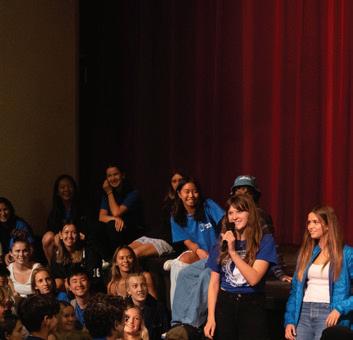
Wake up 7:00 - 8:00 am
Wake up in ’25 House and head to Old Gym for a 15-minute yoga session. Shower and get dressed. Have breakfast with friends.

Assembly 10:50 - 11:05 am
Walk to assembly and sit with your advisee group for announcements and funny skits.
3rd Period 11:15 am - 12:20 pm
Take a seat in Humanities class to talk about our semester-long research project
5th Period 2:10 - 3:15 pm
9TH GRADE SEMINAR
Play a team building game and talk about the results afterward.
Athletics/Theater
3:30 - 5:30 pm
TENNIS
Play a doubles match. Do some strength and conditioning with Mr. Hansen
1st Period
8:30 - 9:35 am
Make your way to the Art Loft where you will learn about color theory.
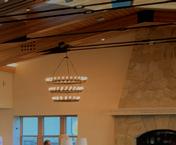
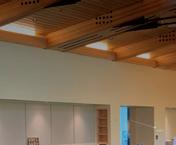
2nd Period
9:40 - 10:45 am
SPANISH
¡Vamos! Dive into Spanish culture and language.where you will learn about color theory.
Lunch 12:25 - 12:55 pm

Lunch time! They have crispitos today!
4th Period
1:00 - 2:05 pm
Head to Physics class to learn (play) with pendulums.
Dinner 6:00 pm
Pasta dinner with ice cream bar for dessert!
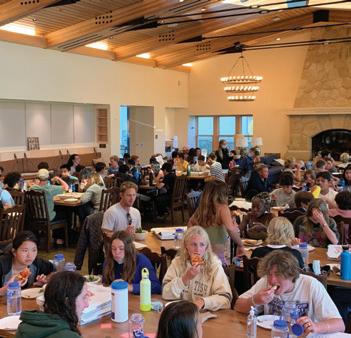
8:00 - 10:30 pm
Watch the sunset with friends then call mom and dad. Get some studying and homework done. Get ready for bed and set your alarm for the next day.
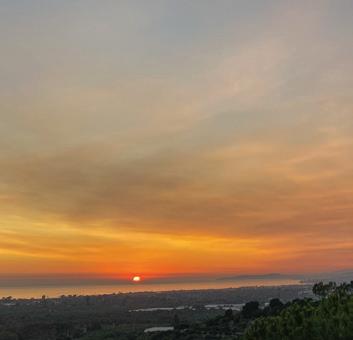
Students in 9th and 10th grade must take one fullyear English class per year. All seniors must take Advanced English 12: Introduction to Modernism in the Fall trimester and select from a rotation of electives for the Winter and Spring.
Yearlong Full credit 2 Course Units
9th grade Humanities serves as a gateway course to learning at Cate and to Cate’s culture of inquiry. Multidisciplinary in nature and closely coordinated in execution, it follows the practices of the humanities by developing and exploring essential questions of human nature and the diversity of human experience in the historical eras of the past and in contemporary society today. Specifically, we engage with authentic, anchoring artifacts of literature, history, art, architecture, and religion drawn from the classical to early modern eras. We also explore modern connections intended to highlight the ongoing relevance of our topics of study and to expose students to a greater diversity of voices and contemporary issues.With an emphasis on disciplined student inquiry, meaningful discussion and oral presentations, creative and analytical writing, and research, the course builds the skills and knowledge that are needed for success in the freshman year and beyond.
Trimester Full credit 1 Course Unit
Much Madness,’ which takes its name from the poem by Emily Dickinson, is a senior elective dedicated to exploring the variety of ways in which the margins of mental health have been depicted in literature –whether as demonic possession, divine inspiration, personal trauma, or personal chemistry. We began by orienting ourselves to the current landscape, familiarizing ourselves with the DSM and reading the work of more contemporary clinicians and writers such as Lauren Slater and Esmé Wang. We then turn our attention to more remote and wide-ranging texts — from the New Testament to Hamlet, Virginia Woolf and Toni Morrison, Dostoevsky, Plath, Nabokov, Nijinsky and Kanye. Students keep on-line journals, responding both freely, personally, and to prepared prompts. The trimester concludes with presentations from each student on an artist of their choosing, featuring what we know of their struggle with mental health, and how it manifests in their art.
Trimester Full credit 1 Course Unit
An introduction to film as a medium for storytelling, this discussion-based course will focus on the elements of filmmaking, including history, cinematography, sound, editing, acting, directing, and the methods by which one “reads” a film. The abiding purpose is to examine each film as a purposefully created universe, whose tone, color, language, framing and speed are all a product of specific and discernible choices. Thus we will study filmmaking and film theory in order to engage in informed analysis of cinematography, editing, and screenwriting. Selected films will cover a variety of genres including drama, comedy, thriller, documentary, and animation. In order to experience films as cohesive narratives, one class each week will extend into an attached “lab” period, allowing us to watch feature-length movies in one sitting.
Trimester Full credit 1 Course Unit
In this reading and writing intensive course, students will follow the daring — or at least unusual — paths of female protagonists who choose to live their lives a little differently. Students will devote most of the trimester to Jane Austen’s Pride & Prejudice, alongside a variety of short stories by female authors who earned their reputations by ignoring and (even defying) societal norms.
Students in 9th and 10th grade must take a yearlong course each year. All students are expected to complete Algebra 2 and Trigonometry or Honors Math 3. Four years of math are recommended for most students.
Yearlong Full credit 1 Course Unit
Math 2 with Vector Geometry is a problem-solving course that provides students with a more rigorous, integrated, and in-depth study of algebra processes. In addition to investigating exponent rules and imaginary numbers, students are asked to transfer their understanding of algebra to topics in geometry such as lines, vectors, parabolas, and trigonometry. Through the exploration of linear motion via parametric equations, students are introduced to optimization and transformations. We use a variety of materials, including iPad technology, graphing software like Desmos, and problems from “Math 1” and “Math 2” written by the math department at Phillips Exeter Academy, which focus on pattern-building through the integration of algebra and geometry. In this course, students take on the responsibility of thinking critically, creatively, and collaboratively to solve meaningful problems on their own, learning content and making connections through the problem-solving context. This course may serve as a transition into Algebra 2 and Trigonometry or, for those who excel and find the curriculum rewarding, it can also serve as an entry point to our Honors Problem Based Learning strand. Prerequisite: Math 1 or the equivalent and consent of the department.
Yearlong Full credit 1 Course Unit
Probability, Statistics, and Calculus is an introductory statistics elective taught through real world data and applications designed for seniors who do not choose to pursue one of the advanced options. In the fall and winter trimesters, the course provides an introduction to the discrete math topics of probability and statistics, including the analysis of data, the conducting of surveys, sampling, experiments, and inference. In the spring the major themes of calculus (the limit, derivative, and integral) are introduced in a conceptual approach using applications, with extensive use of graphing tools such as Desmos or the TI-84. Prerequisite: Algebra 2 and Trigonometry
Yearlong Full credit 1 Course Unit
Advanced Statistics, Multivariable Calculus, and Linear (Math 61H) is intended for students who have completed Advanced Calculus 2 and have a strong interest in higher mathematics. The fall and winter terms of this course comprise an equivalent to a college level, one-semester, introductory course in statistics. The purpose of the Advanced Statistics section of this course is to introduce students to the major concepts and tools for collecting, analyzing, and drawing conclusions from data. Students are exposed to four broad conceptual themes: exploring data (observing patterns and departures from patterns), planning a study (deciding what and how to measure), anticipating patterns in advance (producing models using probability and simulation), and statistical inference (confirming models). The spring term is designed to expose our most advanced students to areas of higher collegiate mathematics beyond Calculusand Statistics. We specifically introduce Linear Algebra and Multivariable Calculus through a series of questions and problems, emphasizing graphs, visuals, and technology. In the Linear Algebra portion, we connect matrices and vectors through applications in economics and science. The Multivariable unit includes gradient, partial derivatives, double and triple integrals with applications to Physics. We use Mathematica software to provide 3-D visuals and expose students to powerful computing tools used in college mathematics. Each student is provided a license for the term. Emphasis will also be placed on proof, a required component of theoretical mathematics. Prerequisite: Advanced Calculus 2 and consent of the department.
Students in 9th and 10th grade must take a full-year History class per year. Every student must take U.S. History in either 11th or 12th grade.
This trimester elective aims to deepen students’ curiosity about the cultural complexity of the world as well as equip students with the anthropological perspectives and skills to better understand and navigate these complexities in their own lives, both locally and globally. Students will begin by deconstructing key anthropological concepts such as ethnocentrism, cultural relativism, culture, and structural violence. In addition to interpreting ethnographic case studies in light of these concepts, students will be challenged to assess themselves using these cultural terms. Students also will devote specific attention to exploring anthropological perspectives on race and ethnicity, class and socioeconomics, gender and sexuality, politics and religion, language and communication, as well as perspectives on violence and social repair. Finally, throughout the course, students will be introduced to two research methods drawn from the field of anthropology: participant-observation and ethnography. Skills include critical reading skills, scholarly discourse, student-led deliberations, and ethnographic projects, all of which are evaluated at an advanced level.
In this course we will detail the plight of African Americans since the first slaves arrived in 1619, including a major focus on the 20th century African American experience through a historical lens. We will explore the traditions and culture that African Americans created to sustain their lives away from their places of origin, including the Black Press, the Black Church, the ideals of the New Negro, Black Art and Literature, and Black Fraternities and Sororities. The reading list includes Isabel Wilkerson’s Pulitzer Prize-winning The Warmth of Other Suns: The Epic Story of America’s Great Migration, and her portrayal of three southern migrants who traveled to various corners of the country. History tells us that between 1915 and 1970 nearly 6 million African Americans left the South for more northern and western cities and the better lives they were sure awaited them there. During our studies we will gain a sense about the complex emotions and struggles (physical, financial, familial, and social) that resulted so that we can better understand the impetus for such a migration and the impact it had on, as Wilkerson states, “our cities, our country, and ourselves.”
This trimester elective directly builds on the key concepts of the first two trimesters by applying them to a focused study of the Middle East. Specifically, students begin the trimester by examining the rich history and dynamic culture of the region. From the dissolution of the Ottoman Empire to the rise of Arab nationalism, the Arab-Israeli conflict, the role of Iran and beyond, students come to understand the deep historic roots of the many political, economic, social, and security issues that face the modern Middle East today. Simultaneously, by looking at key cultural issues such as Islam, fundamentalism, tradition, and modernity, students develop a cultural relative appreciation for the forces driving the peoples and societies of the Middle East. Finally, by combining the lens of history and culture, the students are then empowered to more critically assess the political interplay between nations of the Middle East, and between the United States and the region.
The starting place for this course is the aftermath of war, genocide, and ethnic conflict, with case studies drawn from the 1990s and 2000s that situate students in a variety of post-conflict realities. Although we begin by delving into the impacts of violence (prioritizing the perspectives of non-state actors, including women and children), our primary inquiry in this course is how communities heal following the upheaval of conflict and ultimately seek truth, justice, and social repair. Indeed, in historical learning, we frequently focus on war and its causes and consequences. However, this course flips that orientation and brings to light a greater understanding of how communities make peace. Other themes include the politics of remembering and memorialization; women as survivors and activists; the role of international peacekeeping, criminal tribunals, and reconciliation commissions; and the ethics and challenges of democracy building. Texts in this course are college-level and drawn from across disciplines (incl. History, International Relations, Anthropology, and Sociology). Assignments include student-led deliberations, policy position papers, a self-reflection journal, and a final inquiry-based research project.
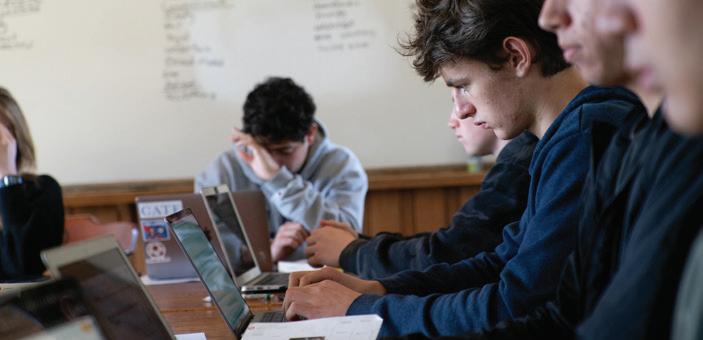
Focused on the 1940s-2020s in the United States, we will examine several specific historical contexts as well as core feminist and queer theories and, from these, infer the concepts, questions, and critiques that are foundational to Gender Studies. Along the way, we will identify how Gender Studies has become more inclusive of the diverse experiences of women, men, and LGBTQ+ communities. Designed as an inquirybased course, we will rely on ‘artifacts’ -- including poetry, documentaries, ethnography, pop-culture content, news media, along with the graphic novel Fun Home -- to further our understanding of how gender shapes (and is shaped by) factors such as politics, class, race/ ethnicity, culture, religion, age, and education, as well as assumptions around biology and sexuality. Finally, we will examine gender issues within the context of today’s political climate and, moreover, imagine the future or next “wave” for Gender Studies. In this vein, students will be asked to deliberate a variety of viewpoints; hone their own opinions; and also will have the option to create a gender-related social activism project. Given the potential for course content to overlap with personal identity, class discussions will be guided by clear rules and expectations to ensure open and respectful discourse, and writing assignments include both analytical and personal narrative forms.
Three years of laboratory science are required; Physics in the 9th grade, Chemistry in 10th grade, and Biology in 11th grade, or as a 12th grade student with approval.
Neurobiology is a rigorous second year, college-level biology course with additional lab requirements exploring central and peripheral nervous systems. Students – starting at the organismal level with nervous system anatomy and extending down to the molecular level with neurotransmitters – will examine how neurons coordinate and control movement and lead to learning, memory, and emotion. Students will learn about the structure and function of the neuron, focusing specifically on its electrical properties of the action potential. Students will perform laboratory inquiries using simulations, live organisms, and preserved specimens (mammalian brains). The class is modeled after introductory college-level neurobiology courses for science majors, so students will learn how to read primary scientific literature and expect to be challenged and demonstrate independence in their pursuit of new learning. Open to juniors and seniors who have completed three years of laboratory-based high school science (physics, chemistry, and biology) and demonstrated high achievement and interest in science coursework. Prerequisite: high achievement in Chemistry and Biology and departmental permission. Co-Requisite: Algebra 2 and Trigonometry or higher.
This senior elective explores the scientific story of the Southern California coast: the story of its beaches, islands, waves, faults, and other natural phenomena. Through the topics of surf, sand, and stone, this course examines the coastal boundary of unrelenting geological and oceanographic processes that have shaped California’s coast and created its unique surf spots, beaches, islands, and coastal ecology. Ideally an outdoor science course, students will explore Cate’s coastal classroom. The big ideas of the course will make the most sense when learning is transferred from the classroom to the beaches, the bluffs, the islands, the mountains, and the salt marsh. The course values the adventure and fun of scientifically investigating intriguing and beautiful places on our coast. If sand grains are caught between our toes and falling from the binding of our books with saltwater-stained pages, then we will know that we are doing it right! Open to seniors. Prerequisites: Chemistry and Biology.
“The Earth is flat, Bigfoot real, Climate Change a hoax, and vaccination a ruse.” Do not be fooled! No longer fall victim to lies and tricks; instead, seek truth by practicing skepticism and recognizing the techniques of frauds and quacks. Science for Life focuses on understanding the nature of science and its methods well enough to develop the skills needed to recognize bunk and misinformation in a world full of charlatans and pseudoscience. Students will learn how to identify and apply scientific evidence, concepts, and theories to distinguish science from non-science, bad science, and thaumaturgy by analyzing various claims and case studies. Building upon three years of science at Cate, this course will hone a senior’s science literacy and critical thinking skills and inoculate them from scientific misinformation using other skills, including logic and data reasoning. These skills are arguably among the most useful and broadly applicable of those any rising college student or citizen may acquire. Open to seniors. Prerequisites: Chemistry and Biology.
All students must take three consecutive years of the same language, and may select from Chinese, French, Japanese, and Spanish.
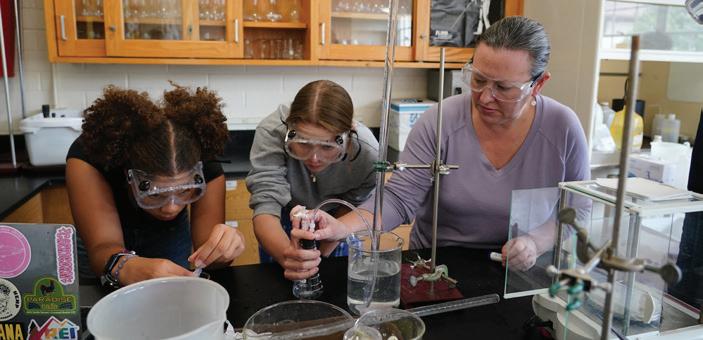
The graphic novel is a medium in France that conveys key cultural concepts through art and dialogue. Graphic novelist Guy Delisle takes us through inaccessible parts of the world with his works Pyongyang, Chroniques Birmanes and Chroniques de Jerusalem, while Marguerite Abouet and Clément Oubrerie have us experiencing Côte d’Ivoire with Aya de Yopougon. Our final graphic novel is about growing up in Libya with a French mother and Syrian father in L’Arabe du futur by Riad Sattouf. Students will be expected to complete three Modern Languages Department Inquiry presentations to demonstrate acquisition of culture, history and political climate reflected in these works.
Prerequisites:Advanced French Literature or native speaker with permission from the department.
This course explores Magical Realism and The Fantastic depicted in Hispanic narrative, film, and art. Dating to the early twentieth century, the magical realism genre weaves magical elements into otherwise realistic human situations. Students will examine works from representative authors and artists, such as Cortázar, Dalí, García Márquez, Kahlo, Allende, Borges, Bioy Casares, and Esquivel. Students also view films such as El laberinto del fauno, Como agua para chocolate and Volver. Prerequisites: Advanced Spanish Language or Advanced Spanish Literature; Spanish 4 and heritage learners with permission of the department.
All 9th grade students must take Foundation Arts. Students must take at least one course in the visual and/or performing arts in the 10th grade and in either the 11th or 12th grade.
Yearlong Full credit 1 Course Unit
All ninth-grade students take Foundation Arts. Through direct experience and the practice of different forms of art, Foundation Arts students develop an understanding of the purposes of art: description, expression, function, and aesthetic appeal. They build essential skills, and learn and employ the principles of design thinking, materials thinking, and creative thinking through project-based work. Foundation Arts students learn skills of awareness and critical judgment. They develop the ability to recognize strengths and areas for improvement in their own work, and to modify their ongoing work to capitalize on such feedback. Students work with many members of the Visual and Performing Arts Departments to engage in learning in a variety of mediums and art forms.
Yearlong Half credit 0.5 Course Unit
This course will explore the theatricality of activism from a global perspective. Trimester one will focus on theatrical techniques that are often used as a catalyst for change in issues of social justice. Students will be introduced to established leaders who have used performance as activism. We will study intention, style, craft and collaboration and students will be asked to model one aspect of the work in a live performance or presentation. Trimester two will be an exploration of “theater of the street”: the activism that occurs as protest. Arguing that protest is performative, the course will look at current and past uprisings such as the Prague Spring (1968), May ‘68 (France), Tiananmen Square (1989), The Arab Spring (2011), Bloody Sunday (N. Ireland 1972), Charlottesville and Womens’ Marches 2017 (USA), and Black Lives Matter Marches (2019-present), Hong Kong Demonstrations (2019-2021). Trimester three culminates with the creation of an original performance, a strategic plan, or a multimedia presentation analyzing the impact of protest as performance.
Chamber Choir: Contemporary A Cappella
Yearlong Half credit 0.5 Course Unit
No Strings Attached, the current name of the ensemble, is the most advanced pop singing group. The a cappella band focuses primarily on modern popular genres such as rock, folk, musical theater, and rhythm and blues. Singers will be expected to: reach a level of excellence in sight-reading, style, and tone, learn and memorize all presented music, create and maintain a community of companionship through voice, and perform on and off Cate campus regularly. Enrollment in this course is by audition. The maximum enrollment size is 9 students. This course meets twice a week in the evenings. Enrollment in this course is by audition.
Yearlong Half credit 0.5 Course Unit
These third-year producers will become leaders in the recording studio. They will lead recording and songwriting sessions with performing artists. Trips to professional studios will be arranged. They will assist younger students in creating chord changes, lyrics, form, beats, melodies, and bass lines. In the studio, they will become prolific at Logic and Pro Tools tips and tricks, learn detailed elements of the SSL console, work with live musicians regularly, record school concerts, and learn more pro-level mixing strategies from guest speakers. Internships in pro studios can be arranged. Prerequisite: Music Production 2
Yearlong Half credit 0.5 Course Unit
This course will explore the art of choreography in different styles like modern, classical, lyrical, hip hop, and cultural dance, as well as special techniques associated with the creation of dance, including research, design and execution. Students will watch films of great dance pieces, create original combinations, and build them towards a performance which can happen throughout the year.

Ceramics 1

Yearlong Half credit 0.5 Course Unit
Ceramics 1 students spend the majority of the year learning how to throw and trim clay on the pottery wheel. By the end of the year, students will be able to throw and trim bowls, platters, vases, jars with lids, pitchers, jugs, mugs, and ultimately, a teapot. The focus of Ceramics 1 is indeed the development of basic throwing skills; however, basic decorating practices are also utilized to enhance each piece. By the end of the year, students will begin to demonstrate through the glazing of their pieces a harmony in the relationship between a form and its colors and decoration.
Students in 9th-11th grade receive gradelevel theme aligned programming on a variety of topics including social-emotional wellbeing, service leadership, and social justice.
Yearlong Half credit 0.5 Course Unit
Meeting two periods weekly and required of all freshmen, this course is designed to build a foundation in Well-Being and Service-Leadership around Orientation and Organization at Cate. In the fall, topics include time management, school expectations, extracurricular programming, personal values and independent living. The course focuses on self-awareness, responsibility and self-advocacy, including boundary training that addresses hazing, harassment, and bullying. Discussions include issues in human relationships, personal growth, and good decision-making. In the winter and spring, the course aims to disseminate clear and accurate information about sexuality, reproduction, birth control, health, communicable diseases and drug education, and to encourage respect for others regardless of gender, race, ethnicity, sexual orientation, or other differences. The approach is designed to promote positive communication skills, values clarification and effective decision-making skills. An overnight hike to Bee Camp and Freshman Public Day are highlights of the freshman outdoor and service-leadership curriculum.
Yearlong Quarter credit .25 Course Unit
Meeting one time each week and required of all sophomores. In the fall, this course deepens the foundational SEL skills of Human Development through Service-Leadership while emphasizing Cate’s- Servons motto through Service- Leadership in the Outdoors and Service-Leadership through Social Justice. A Sophomore Service-leadership retreat will be the capstone of the fall experience. The second half of the year is dedicated to Well-Being. Topics of study include the Developing Teen Brain, the Power of Social Dynamics; Healthy Relationships and Consent, Self- Advocacy, Setting Clear Boundaries; Sexual & Identity Health, Identity Development; Wellness, Stress, and Relaxation Techniques; Integrity in Interpersonal Relationships; Drug Education, awareness and prevention of abuse.
Vision into Practice
Fall Trimester Quarter credit .25 Course Unit
In choosing to serve something greater than our own interests, we aspire to build a better community. This, of course, is what Mr. Cate intended when he chose Servons as his school’s motto. We serve every day in simple ways, often without thinking about it. But what if we do think about it? What if we exercise our intellectual capacities in the development of a skill set designed to inspire shared vision, foster collaboration, and build trust? The most effective leadership is rooted in behaviors, not traits, in deliberate practice, not personality. Through a mix of academic inquiry and live practice, this seminar-style course is designed to help you develop “authentic leadership” – the ability to serve and lead according to the principles that matter most to you.
Yearlong Half credit 0.5 Course Unit
The Human Development department approach is modeled on both social and neurological development, beginning with Freshman Seminar then culminating with our senior Teaching Assistants who give back to the school in the freshman seminar classes and on campus. TA’s are asked to model the wellbeing and serviceleadership behaviors – self-discipline, persistence, awareness, responsibility, and kindness, create a positive class environment by engaging enthusiastically with the students and the material, and connect with students outside of class – in order to best meet student needs and develop communication to better practice. Senior Teaching assistants will facilitate classes and connect with their seminars. The program begins with a two-day training retreat in the fall. Application process required.
Students in the 12th grade have the opportunity to take electives that cross disciplines.
Comparative Religion is an interdisciplinary offering of the History and English departments that seeks to provide an overview of five of the world’s major religions – Judaism, Christianity, Islam, Hinduism, and Buddhism. By examining the origins, key tenets, and scriptures of each, students should come to recognize what distinguishes these traditions and what connects them, and to appreciate the variety of practices and beliefs that each of these religions encompasses. Also, by considering the mystical as well as the orthodox literature of each tradition, the expectation is that students will come to a deeper, more refined understanding of what religion is – as distinguished from science, say, or philosophy – and how the various questions of faith represent not just a viable, but necessary path for human, spiritual, and personal inquiry down through the centuries and up to the present day. To this end, we will of course be considering the impact of faith on current events, all by way of preparing students for the final unit of the trimester where they design and present their own inquiry projects exploring a religious tradition of their own choosing. This class is open to seniors for English credit and to both juniors and seniors for history credit.
The Wilderness Ethos is the first trimester of this two-trimester course. Students will examine the role of wilderness in American culture – historically and currently – using the writings of authors such as Thoreau, Abbey, Stegner, Leopold, and McPhee to develop a personal understanding of the value of wilderness in their own lives. While developing their critical reading and writing skills, students will examine current environmental and political implications of our impact on the American wilderness and, through the use of a journal, work actively to articulate their own developing perceptions about the role of wilderness in American culture. In the winter trimester, there will be an overnight solo backpacking trip, and students will begin to learn the skills of whitewater kayaking in preparation for the river trips of the spring trimester.
Looking Inward is the second trimester of this two-trimester course. The classroom component of this course shifts from analytical reading, critical writing, and argumentation in the winter term to personal introspection and creative writing with a study of the novel The River Why. Students will explore how the American wilderness has shaped various spiritual paradigms found in American society and use class discussions and journal writing to develop their own sense of their place in the natural world. In the spring trimester, students will continue to develop their kayaking skills locally and will spend a weekend on the Kern River applying their whitewater skills to moving water. Prior to Commencement, the course culminates in a week-long desert wilderness river trip in Utah.
Advanced Computer Science equips students with the programming skills to solve a diverse set of complex computational problems. The course covers Object-Oriented Programming principles, data structures and algorithms, and data science and visualization. Each trimester-long unit culminates in a major project in which students are given considerable leeway to pursue specific interests (e.g. video games, arts, economics, physics, and more). Open to juniors and seniors. Prerequisite: Introduction to Computational Thinking or permission of the department.
The College Team creates a nurturing space for transparency, collaboration, and selfreflection. In our anti-racist college class, individual meetings, and communication with families, our messaging is honest and specific to Cate. Students use a data-driven approach when building college lists, and are empowered with data-driven tools that encourage collaboration as they enter the research phase of the college process in junior year. This connects to Cate’s spirit of inquiry and leads students to a closely guided journey of the self. While students are learning about colleges and how to research them, they are also learning about who they are at Cate and in the world.. This guided journey is more than a college counseling experience - it’s an exercise in self-reflection that highlights how both their experience at Cate and their path beyond the Mesa shape their identity and world view.
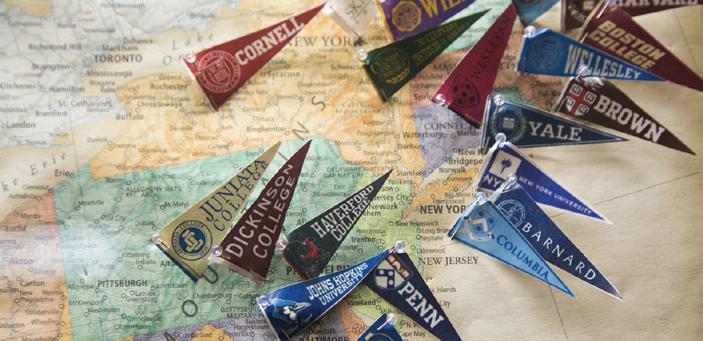 SCAN TO LEARN MORE ABOUT THE COLLEGE COUNSELING PROGRAM AT CATE.
SCAN TO LEARN MORE ABOUT THE COLLEGE COUNSELING PROGRAM AT CATE.
College counseling begins in 10th grade when students reflect on who they are and how they will access Cate’s unique resources to create their future. In one-on-one planning meetings with a college counselor, students plot out summer plans and academic paths.
In 11th grade, students are enrolled in our anti-racist seminar class that focuses on the history of higher education, the creation of women’s colleges, HBCUs, and how universities shape society. In this course, students take a data-driven approach when building a list of colleges where they will thrive.
During 12th grade, students turn their attention to the practical parts of applying to college. Our students learn that this process is not about gaining acceptance into the most selective college, but about gaining self-acceptance and a better understanding of how to think critically, write cogently, and create sustainable solutions for the world in which we live.
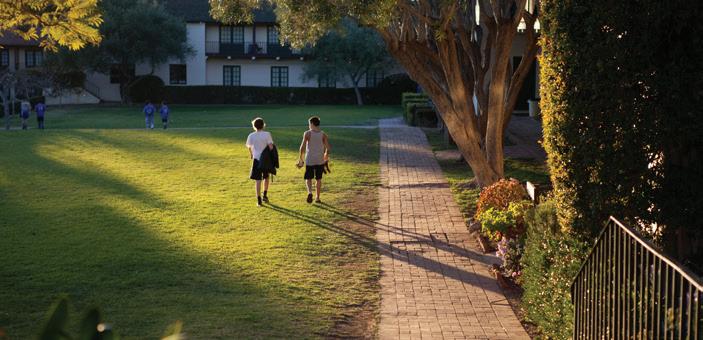
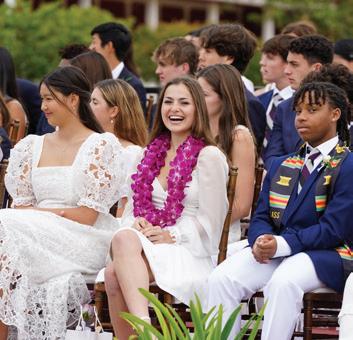

Through commitment, scholarship, companionship, and service, each member of the Cate community contributes to what our founder called “…the spirit of this place… all compounded of beauty and virtue, quiet study, vigorous play, and hard work.”

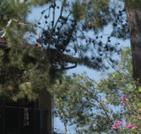
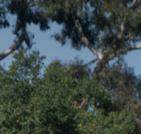
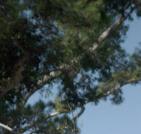
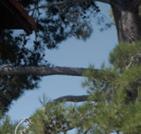

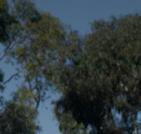
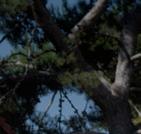
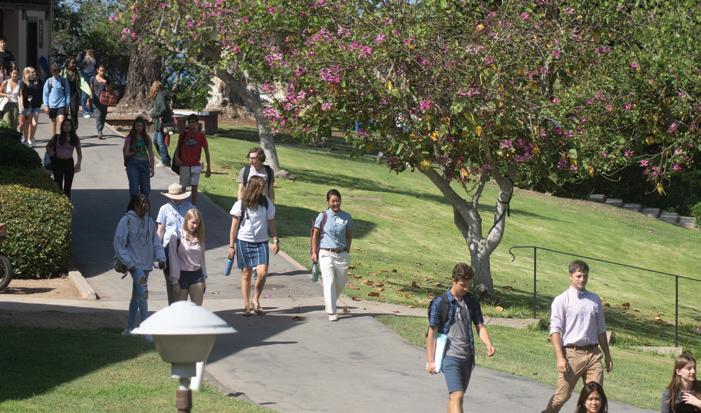
www.cate.org
